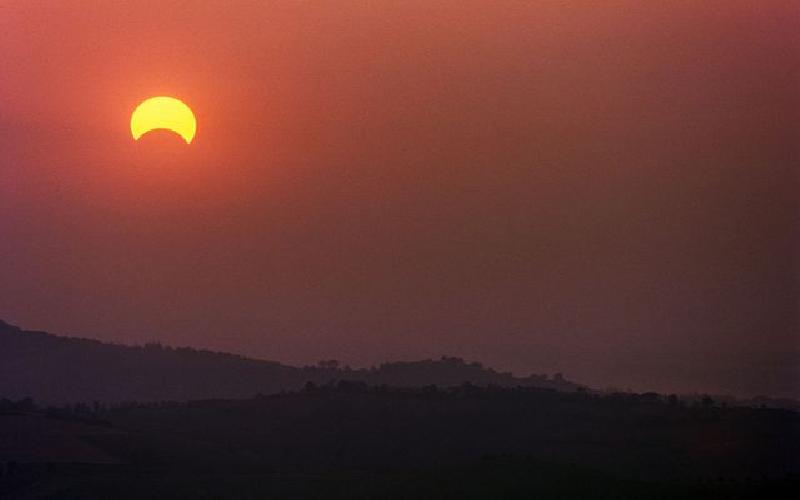The sky and its objects have been objects of fascination, imagination and inspiration for humanity since eternity. Our ignorance about them, the limitation of what we can see with bare eyes and our imagination which knows no bounds has together interacted to form not only beliefs and superstitions, but even complex semi-sciences like astrology and predications, which survive even today in spite of all our knowledge, for the simple reason that what we know is too miniscule compared to what we don’t.
The Sky and Mankind
Modern urban dweller rarely gets a chance to look at the night sky, and even when
he momentarily does, the lights around him often obscure his vision and hardly leave him with an opportunity to stare at the heavenly bodies that lit the space above him. Thus, it may often be very difficult for us to make out how the age old beliefs and superstitions about them came to exist and even occupy so much importance in our social life. Today, many of these beliefs and superstitions look primitive, stupid or even illogical, but would probably be better appreciated if we are able to put ourselves in the shoes of our ancestors and also be able to understand the underlying concepts rather than the superficial expletives.The Fascination of Eclipses
The most fascinating event of the skies has always been the eclipse. Solar eclipse has been considered a very significant event. Most civilizations considered it to be associated with negative consequences and inauspicious for events like marriage, coronation and celebration. In a way this approach depicts the moderating influence that celestial events brought on mankind, by making them realize their ignorance as well as their insignificance in this vast universe. The phenomenon of Sun just disappearing in broad daylight is a daunting experience even today. For the earlier people who paid much more attention to nature and were affected far more by it, it would have been enough to sent shivers down their spine.
Many civilizations have legends and fables associated with eclipses and celestial bodies. In Indian tradition, two entities called ‘Rahu’ and ‘Ketu’ are conceptualized who are always striving to engulf the Sun and the Moon respectively, causing eclipse. While it is
common to portray them as demons, the learned express them as stellar situations or relative movements of planets that are pre-destined and inevitable. They have a lot of significance in astrological calculations.The Celestial Sun: Giver of Life
Among the celestial bodies, the most important is the Sun, which has been worshipped in most ancient civilizations, including Rome, Egypt and India. The central source of energy which helps the human race and all other forms of life to thrive on Earth is ironically given more appropriate significance and credit than we are able to do in spite of all other advancements in science and knowledge. Sun worshipping has been near universal, but the form in which it was perceived or projected was often different from place to place, and time to time.
Moon: The Object of Fancy
Moon on the other hand is always an object of fancy. It is often used as a euphemism for beauty and peace, concepts which probably arose from the site of a full moon on a calm night that was reassuring as well as added light to their world. Its changing forms and shapes added to the fascination and formed the earliest calendars and astrological works. Childish curiosity about the Moon and its spots also gave rise to fables and beliefs such as that of an old lady working there or the spots being a result of an dejected lover’s curse. Stars too have had a lot of significance in people’s beliefs and tradition. On one hand they were used in astro-predictions, while on the other they were the objects of fables and tales that passed down the generations as the earliest literatures that humans produced.
These celestial bodies and events have been a special part of our collective memory and conscience, and while they may not be rational or scientific, they at least deserve to be remembered as part of our history and tradition.










